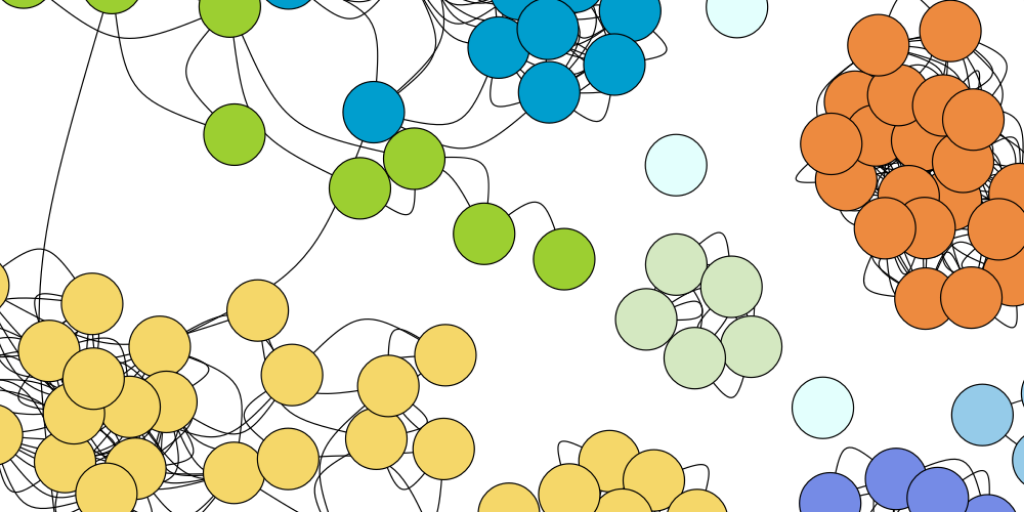Reintroducing the Chemical Information Science Gateway
| 18 July, 2019 | Vicky Hellon and Jürgen Bajorath |
|

|

In this blog Vicky Hellon, Associate Publisher at F1000 and Jürgen Bajorath, Chair of Life Science Informatics at the University of Bonn, discuss the relaunch of the Chemical Information Science gateway on F1000Research.
Here at F1000, we have spoken a lot about the importance and value of Open Access. We believe that science in all its forms should be accessible to all, free from barriers or restrictions. Knowledge is of most value when it’s widespread and available to everyone.
In recent years Open Access has become increasingly more common, especially within the physics and biology disciplines. A recent study published in PeerJ estimated that at least 28% of the scholarly literature is Open Access, however, research published in BMC medicine found that the discipline of chemistry and chemical engineering was one of the least likely out of the major scientific disciplines to have articles that were published open access, rather behind a paywall. Therefore, chemical sciences – the remaining member of the science trifecta – remain in many ways on the outskirts of the Open Access movement.
It’s not clear why Open Access isn’t as common in the chemistry community as much as the other sciences, but researchers within this traditionally conservative discipline stand to benefit if this practice becomes more widely implemented. Publishing your work openly can lead to increased visibility and impact through more frequent downloads and citations and broader societal impact through a more global reach.
Baby Steps
There have, however, been some exciting developments for Open Science in chemical sciences in recent years. The establishment of open databases such as the Crystallography Open Database ,Spectral Database for Organic Compounds, PubChem, or ChEMBL allow researchers access to relevant compound data which can then be utilised in their work.
A big milestone was the establishment of the ChemRxiv preprint server in 2017, joining bioRxiv and arXiv, the biology and long running physics preprint serves, respectively. ChemRxiv allows researchers to publish their work almost immediately, enabling very quick dissemination and feedback before potentially submitting the work to a regular journal- it has proved popular so far! Another clear indicator of the increasing attention paid to Open Access publishing in the chemical sciences is the strong development of ACS Omega, the broad spectrum Open Access journal of the American Chemical Society.
Chemical Information Science Gateway at F1000Research
In 2015 we launched the Chemical Information Science Gateway (CISG) which we foresaw as just one of the ways to bridge the gap of Open Access in the chemistry community. The scope of the gateway includes all computational approaches to represent and analyse chemical structures and chemical data or retrieve chemical information from any source. It also includes topical areas in chemical information science including artificial intelligence and machine learning methods.
We feel the CIS gateway provides an alternative publishing venue in a traditional landscape, supporting Open Science and Open Access, and providing authors with fast publication, transparent peer review and ample opportunities for unconventional submissions. In this regard, the CIS gateway does fill a void in the CIS publication landscape where a flagship journal is currently missing. Moreover, the CIS gateway provides a much-needed discussion forum for the CIS community, due to its post-publication review and communication culture.
Thoughts from our advisory board

“The model of scientific publishing, which had been largely unchanged for hundreds of years, is undergoing rapid evolution. Rather than waiting months to publish new results, groups are opting to release their findings through new mechanisms such as blog posts and prepublication servers. Many computational disciplines have embraced the concepts of Open Source and Open Science, and these changing attitudes are enabling researchers to quickly adopt, and build upon, the work of others. The CIS Gateway, which promotes the rapid and open publication of new computational methods and results, is an ideal vehicle for this new era of scientific publication.”
Pat Walters, VP Computation at Relay Therapeutics

“The CIS gateway allows scientists to publish their work quickly and in a readily accessible way that can, for example, contribute an important viewpoint, correct a common misconception, or open a discussion on a hot topic.”
Katharine Holloway, PhD, Principal Scientist, Gfree Bio LLC

“The CIS gateway offers a modern alternative for publishing. It aims at removing editorial hurdles encountered in the traditional publishing process while ensuring scientific standards. Open peer review and public comments encourage scientific discourse thus making the gateway an ideal platform for novel unconventional contributions.”
Martin Vogt, University of Bonn
In the past four years, CISG has not attracted the attention in the greater CIS community we initially had hoped for. There are likely multiple reasons for this, but we feel that the CIS gateway probably was ahead of the curve and that now is a good time for a ‘re-fresh’ as Open Science practises and attitudes have progressed in the chemical sciences community as well. Particularly exciting to see is that 30% of the current preprints on ChemRxiv are in the computational chemistry discipline. We are refreshing and re-engaging our high calibre advisory board and will be putting out a call for papers later in the year, likely joint with our Python collection, with Python coding being a mainstay in the CIS field.
It’s clear that the current papers hosted on this gateway are seen, highly accessed, and cited and so in the meantime we would like to encourage researchers to consider the CIS gateway on F1000Research for their next publication and experience the benefits of Open Access.
You can submit to the gateway via this link and read more about our repositioning in our new Editorial here.

|



User comments must be in English, comprehensible and relevant to the post under discussion. We reserve the right to remove any comments that we consider to be inappropriate, offensive or otherwise in breach of the User Comment Terms and Conditions. Commenters must not use a comment for personal attacks.
Click here to post comment and indicate that you accept the Commenting Terms and Conditions.